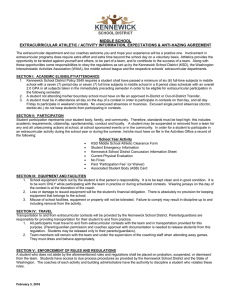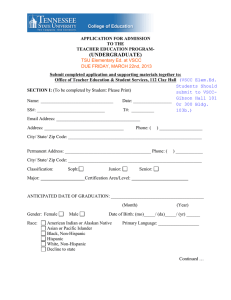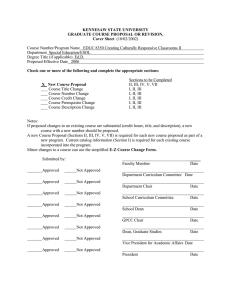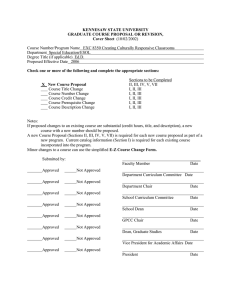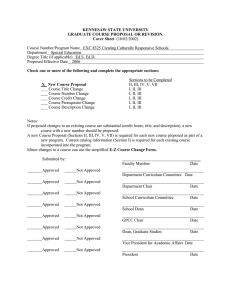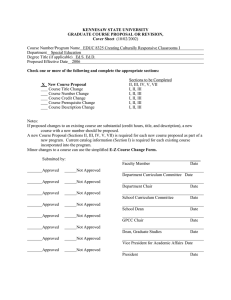Students
advertisement
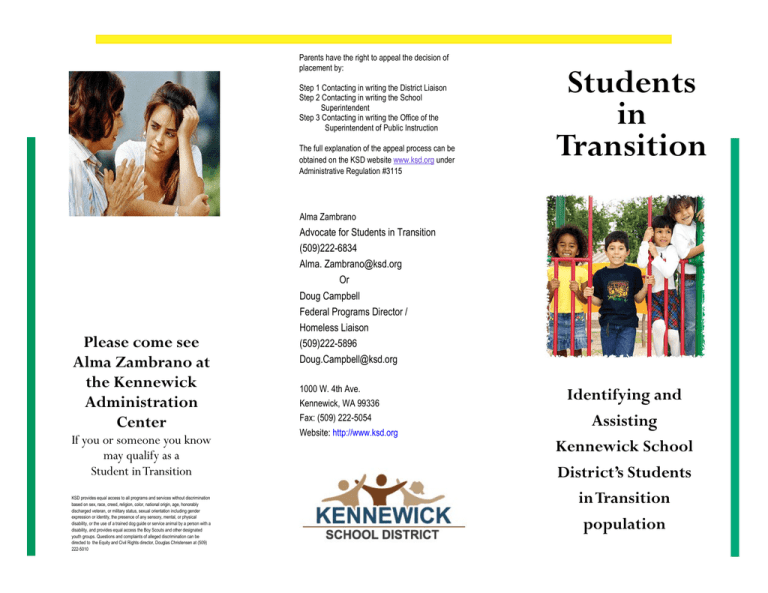
Parents have the right to appeal the decision of placement by: Step 1 Contacting in writing the District Liaison Step 2 Contacting in writing the School Superintendent Step 3 Contacting in writing the Office of the Superintendent of Public Instruction The full explanation of the appeal process can be obtained on the KSD website www.ksd.org under Administrative Regulation #3115 Students in Transition Alma Zambrano Please come see Alma Zambrano at the Kennewick Administration Center If you or someone you know may qualify as a Student in Transition KSD provides equal access to all programs and services without discrimination based on sex, race, creed, religion, color, national origin, age, honorably discharged veteran, or military status, sexual orientation including gender expression or identity, the presence of any sensory, mental, or physical disability, or the use of a trained dog guide or service animal by a person with a disability, and provides equal access the Boy Scouts and other designated youth groups. Questions and complaints of alleged discrimination can be directed to the Equity and Civil Rights director, Douglas Christensen at (509) 222-5010 Advocate for Students in Transition (509)222-6834 Alma. Zambrano@ksd.org Or Doug Campbell Federal Programs Director / Homeless Liaison (509)222-5896 Doug.Campbell@ksd.org 1000 W. 4th Ave. Kennewick, WA 99336 Fax: (509) 222-5054 Website: http://www.ksd.org Identifying and Assisting Kennewick School District’s Students in Transition population Who are Students in Transition? According to the McKinney- What is the McKinney Vento Act? *awaiting foster care The McKinney-Vento Homeless Education Assistance Act is a federal law that ensures immediate enrollment and educational stability for homeless children and youth. It also may allow students to remain enrolled in their school of origin even if they move outside their school boundaries (if feasible). McKinney-Vento provides federal funding to states for the purpose of supporting district programs that serve homeless students by assisting with: placement. School stability Living in a motel or hotel. School access Living in a short term trailer Support for academic success Child-centered, best interest decision making Vento Act. Homeless Children and Youth are: Individuals who lack a fixed, regular, and adequate nighttime residence... This includes: Students doubled up, sharing housing, couch surfing, and *unaccompanied youth. Living in emergency or transitional shelters, or are park or campground. Sleeping in a public or private place that is not designed for regular sleeping accommodations. Services for qualified Students may include: Transportation to and from school School breakfasts and lunches School Supplies Clothing Vouchers Referrals to Social Service Agencies (i.e. medical, dental, vision, etc.) *Awaiting Foster Care: The period of time between the initial placement of the child into state care and the 30-day shelter care hearing . * Unaccompanied Youth: Student that is not in the physical custody of parent or guardian; student is “couch surfing” not living at a regular, fixed or adequate location.
